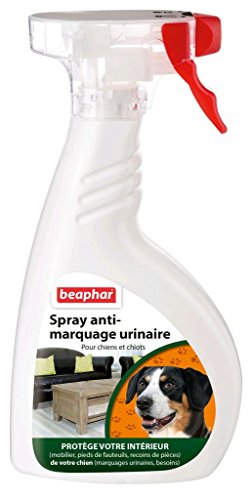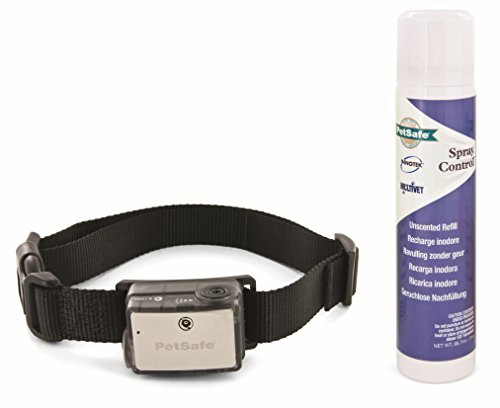
Persistent Barking
A bark is a natural expression for dogs. But a dog that barks all day and all night can cause a major noise pollution hazard for owners and neighbours alike. Whether the dog barks incessantly or just when he or she is left alone, persistent barking indicates that there is something unhappy about the dog. This Dogs.co.uk guide examines persistent barking and proposes some common causes and treatments.
Why do some dogs persistently bark?
Dogs that bark all the time can cause a nuisance. There are a number of different reasons why a dog may bark excessively. Dogs commonly bark at several different stimuli. The first is to guard, a natural instinct for dogs. The second is to attract attention or because he or she is excited. Barking persistently generally means that the dog is distressed, afraid or bored.
What are common causes of persistent barking?
Under-stimulation is probably the major cause of persistent barking. Dogs left alone for long periods of time without constructive distractions, and either walked infrequently or too little are likely to become bored. In some cases, persistent barking may have a greater cause and a Pet Behaviour Counsellor may be the only person who can help. Punishment-based training, thankfully, is on the decline.
It is worth remembering that barking comes naturally to dogs, and it is their way of communicating. When dogs bark it is because they have something urgent to say. Dogs may also bark persistently to seek attention, defend their territory, and because of a medical problem or loneliness.
What problems can a persistently barking dog cause?
Perhaps the most likely problem caused by barking dogs is noise pollution to neighbours. This is likely to occur when you are out of the house. It is always worth asking your neighbours, and if one of their dogs is barking a lot, let them know as soon as you can. Owners are often unaware the problem exists.
How can I stop my dog persistently barking?
There are several methods to prevent dogs from barking incessantly. However, it is worth bearing in mind that stopping the dog from barking does not necessarily mean that the problem causing the barking is solved. For instance, an electronic-shock dog collar (used until relatively recently) removes the dog’s ability to communicate its problem, and may lead to the dog giving different indications of anguish such as chewing or even biting.
If you must go out for long periods of time and leave your dog alone, consider the following things:
- Make sure the dog is fed and exercised, and has more than one source of fresh water
- Make sure the dog has somewhere comfortable to sleep
- Ensure the house is not too cold, too hot, or too airless.
- Don’t let the house fall into total darkness; all dogs are sensitive to this.
- Experiment with leaving a radio on – some dogs will be comforted whilst others will be alarmed.
- If the barking starts suddenly and is out of character consider taking the dog to a vet, he or she may be ill.
Buy Dog Behavioural Spray Products
Biting/Growling
One of the natural instincts of young puppies is to bite and gnaw at people. This should not be allowed.
There are several methods to train the puppy not to bite. For instance, when it does you can feign injury to the hand and make sure to act out pain convincingly. This should show the puppy from an early age that biting will not be accepted. However, if biting continues and this does not work, you should stand up and clearly say ‘NO’ or ‘NO BITE.’ It is important to show that biting is not a game. Many bites occur through the dog becoming over-excited. If the dog gets infuriated or over-excited, place it away from you, give it a rest, then try again. Puppies who are allowed to bite can develop into problematic older dogs.
Some dogs bite through fear. Usually this type of dog has a poor temperament and could have sustained abuse, and should not be bred. To deal with this type of dog means dealing with insecurity and low self-confidence. You need to build up its confidence gradually and realise exactly what sets off the alarm in the dog, and work slowly on this fear. Many people enlist professional help in this instance, because it takes a lot of experience.
Growling over food is another common problem with dogs, and can escalate to far more severe problems. Dogs should not be allowed to growl at people over food, despite many people thinking that they are entitled to do so. The solution is to show your dog that you are no threat to its food. You should concentrate on taking the food away from the dog, and not taking the dog away from the food – the food dish needs to be the focus of any training.
Chewing (furniture and other household objects etc)
Destructive chewing is a natural action for many dogs. Puppies like to chew as an exploration, and they test items with their teeth. Some puppies will also chew to relieve the discomfort of teething pain. Adult dogs may also chew because it feels good on their teeth, because they are bored, or occasionally because of a nutrient missing from their diet. Chewing problems are much easier to prevent than correct.
Preventing a dog from chewing anything left within its reach must start when the dog is a young puppy. Some people prefer to confine their dog from a young age when it is unsupervised, although to do this you must provide sufficient levels of exercise, nutrition and attention. Dogs can also be provided with well-chosen chew toys, and trained to appreciate chewing them through praise. If your dog does chew destructively, punishment is not usually a successful way to correct the problem. Inconsistent punishment, for instance, can do much more harm than good. For instance, punishing a dog after the event is useless. When the dog is punished for chewing he will simply chew when the owner is not there. Physically assaulting a dog does no benefit to anyone.
Always exercise your dog; insufficient exercise often causes chewing problems. Dogs should be walked extensively if they are to be left for the day. The dog should also be exercised before bed time, to avoid nocturnal chewing.
Chew toys can play a massive role in training your dog, and having them spread through the house can save you serious anguish. Once your dog becomes familiar with finding chew toys in each room of the house they should cease to chew other things. Further training should focus around dangerous and forbidden objects, such as shoes or electrical chords. As the dog is about to sniff or chew the object say ‘OFF!’ or ‘NO!’ in a steady, firm voice. Chew toys come in all shapes and sizes; variety is the key.
Older dogs that start chewing may have an illness and should be taken to a vet immediately. The problem may also be down to something missing in their diet. When you vary a dog’s feeding habits, they may develop destructive chewing in response.
Buy Dog Anti-Chew Spray Products
Disobedience
Disobedient dogs often need to be rewarded for doing things right rather than punished for doing things wrong. This is in many ways the fundamental principle of training a dog and can help in all sorts of situations. It is important to think of what the dog would consider as a reward rather than what you yourself consider as a reward. You can then work out what are not rewards, and use these in your training.
Rewards for disobedient dogs should include petting, verbal praise, food, and whatever else brings your dog to life. Penalties can include anything the dog does not like, although physical penalties are strongly discouraged.



























